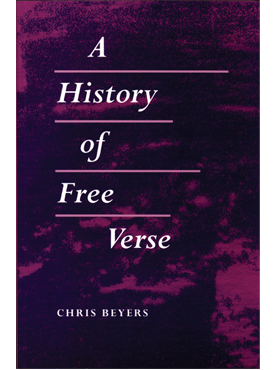This book examines the most salient and misunderstood aspect of twentieth-century poetry, free verse. Although the form is generally approached as if it were one indissoluble lump, it is actually a group of differing poetic genres proceeding from much different assumptions. Separate chapters on T.S. Eliot, Wallace Stevens, H.D., and William Carlos Williams elucidate many of these assumptions and procedures, while other chapters address more general theoretical questions and trace the continuity of Modern poetics in contemporary poetry.
Taking a historical and aesthetic approach, this study demonstrates that many of the forms considered to have been invented in the Modern period actually extend underappreciated traditions. Not only does this book examine the classical influence on Modern poetry, it also features discussions of the poetics of John Milton, Abraham Cowley, Matthew Arnold, and a host of lesser-known poets. Throughout it is an investigation of the prosodic issues that free verse foregrounds, particularly those focusing on the reader’s part in interpreting poetic rhythm.

